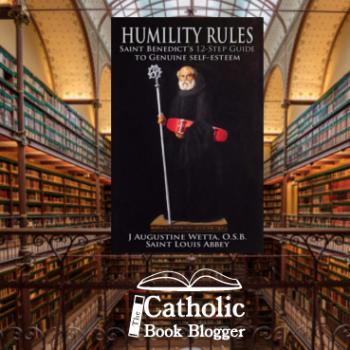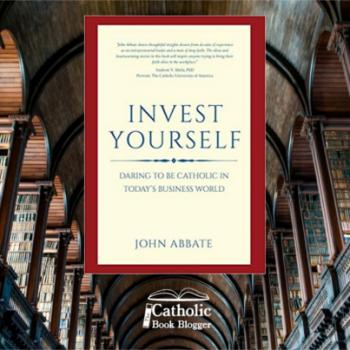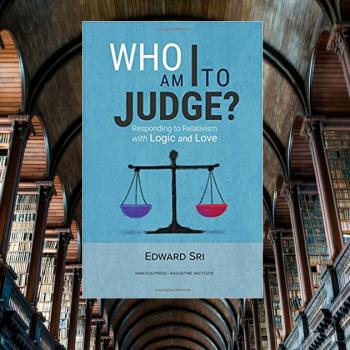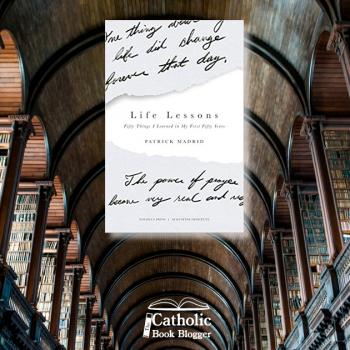 Daniel P. Horan , O.F.M. has recently given us a new insight into Thomas Merton in his new book The Franciscan Heart of Thomas Merton: A New Look at the Spiritual Inspiration of His Life, Thought, and Writing
Daniel P. Horan , O.F.M. has recently given us a new insight into Thomas Merton in his new book The Franciscan Heart of Thomas Merton: A New Look at the Spiritual Inspiration of His Life, Thought, and Writing. Thomas Merton to this day is much admired and his numerous books and articles are often read. There have also been a myriad of books written about Merton. This particular book I found most interesting as Daniel did a wonderful job showing how St. Francis of Assisi, perhaps the most popular saint in history, influenced perhaps the most popular spiritual writer of our times, Thomas Merton.
From the introduction: “This book is organized into four parts. The first part offers a brief overview of the lives and contexts of Francis of Assisi and Thomas Merton is chapters 1 and 2 respectively. Part two presents a new look at and closer examination of the events in Merton’s early life around the time of his conversion to Catholicism and during his initial discernment of a vocation to religious life and the priesthood. Part three is a section dedicated to three of the areas of faith and spirituality in which Merton was most influenced by the Franciscan tradition. Part four focuses on the ways in which the Franciscan tradition helped shape Merton’s views of the world.”
Those familiar with Merton know that he never did become a Franciscan. There are a number of theories as to why, some of which are explained in the book, but he always held the rule of Francis close to his heart. In fact it only strengthened in his time living and teaching at St. Bonaventure University. These early years of his discovery of his Catholic faith and his choices on how to live out his vocation are really a fascinating read and one that Daniel does well presenting.
A chapter I really enjoyed was Chapter 10 “Becoming Instruments of Peace: How Francis and Merton Challenge Us to Live Today.” In light of the current events around the world regarding ISIS and Boko Haram this chapter is very fitting, It delves into peace making and how both St. Francis and Thomas Merton reflected this virtue. Here again Merton’s writing takes center stage in a piece he wrote for Dorothy Day’s The Catholic Worker titled “The Root of War is Fear”. There were other writings by Merton on the topic but this was his first. Daniel guides us through these writings to reveal yet another way in which Merton followed Francis’ lead. An important thing to remember is that this spirit of peace making is not only on an international stage. We can practice this virtue right in our own lives with family, friends and neighbors. There was a particularly thought provoking passage from this chapter I wish to relay here in it’s entirety:
“….the way we look at others, evaluate them, judge them, exclude or marginalize them, ignore them, hold grudges against them, withhold love from them, or maintain a position of violence toward them must change. Christians who do these things cannot claim to be following Christ, nor can any human who isn’t working for peace claim to be truly human. This is perhaps the most challenging aspect of taking seriously the legacies of Francis of Assisi and Thomas Merton: we cannot simply go about living our lives in the way we always have. Only in daring to hear and respond to the challenge Francis and Merton present to us can we really become instruments of peace.”
The Franciscan Heart of Thomas Merton is a wonderful reflection upon both the legacies of Francis of Assisi and Thomas Merton. Two men separated in time but perhaps not in thought. It shows us a side of Thomas Merton that many of us have never realized. Daniel P. Horan, a Franciscan himself, is perhaps the best person to show this and he has done an exemplary job. I close this review with his own words.
“That Thomas Merton had a Franciscan heart seemed an odd claim to make about the most famous Trappist monk of the last century. Yet, as I hoped to have shown in this book, the initial attraction to and continued influence of the Franciscan tradition indelibly shaped the worldview of Merton.”
_____________________________________________________________________________________________________











